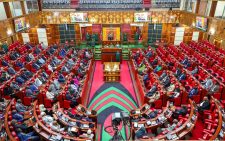Tough new laws await PBOs operating in the communities

The Public Benefits Organisations will have to demonstrate that their goals and operations serve charitable purposes, and offer direct public benefit rather than private gain if a new law is enacted.
The PBO Act that is currently being operationalised will also ensure no undue advantage is conferred on the directors or their close associates, and the PBOs that feel aggrieved over decisions made by the regulator, Public Benefits Organisations Regulatory Authority (PBORA), can now file an appeal with the disputes’ tribunal established by the Judiciary.
The Act also provides mechanisms for asset protection, outlines procedures for registration, enhances transparency, and increases citizen participation and accountability in the sector.
The enactment of the Act will strengthen the legal framework guiding the operations of the sector, formerly the Non-Governmental Organisations (NGOs), that received a total of Ksh196 billion in project support and employed approximately 80,000 persons last year.
Implementation date
The government on Thursday last week launched the Draft Public Benefit Organisations (PBO) Regulations in Nairobi, marking a key step in the implementation of the Act, which came into force on May 14, 2024.
According to the PBORA Director General, the regulations, a product of collaboration between the government and civil society stakeholders, are expected to usher in a new era of transparency, accountability, and legal certainty.
Under the new framework, registration as a national PBO will require that at least one-third of the officials must be Kenyan nationals.
For international organisations seeking to operate in Kenya must have been active in their country of origin for at least three years and show proof of public benefit activities.
PBORA will serve as the independent oversight body responsible for enforcing the regulations.
Its mandate includes registration, compliance monitoring, advising the government on PBO-related matters, and interpreting policy.
Once registered, PBOs will be required to maintain proper records of their activities, including financial statements, audited accounts, and annual progress reports.
The organisations must also notify the authority within 30 days of any material changes, such as updates to their structure, leadership, operational focus, or physical address.
Equally, PBORA has the power to suspend or deregister a PBO for non-compliance, inactivity, false reporting, or misconduct.
During suspension, affected organisations cannot withdraw funds, alter their governance structures, or initiate new projects until they are reinstated.
Certified organisations
PBOs that choose to dissolve must account for all assets and liabilities, and transfer any surplus to another certified organisation.
The authority may also deregister organisations that have failed to operate for over a year or are involved in unlawful activities.
Speaking during the launch of the draft regulations, Internal Security Principal Secretary Dr Raymond Omollo described the move as a long-overdue milestone.
“This is a journey that began 12 years ago. We may have missed an opportunity; could we have had more PBOs registered and created more employment? This could have assisted those who are many who are vulnerable and at the very bottom of the pyramid,” he said.
Though the Act was passed in 2013, it remained in limbo due to legal ambiguities and administrative delays.
Although a government task force was formed in 2014 to propose amendments.











